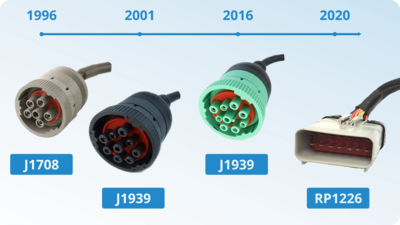On this episode of The Road Forward, Alex, Flint, and Matt discuss what’s new in the trucking industry. They shared their thoughts on recent company shutdowns, the trucking agenda for 2023, and the stigma against commercial trucks on the road.
Michigan Company Shuts Down After 50 Years
Any trucking company that has been open for 50+ years has proven that they know how to run a business. That begs the question– why close down your operation now? Alex and Flint both had the experience of shutting down their trucking business due to the changing market. With so many companies closing their doors–including well-established ones– what makes a successful business strategy?
It’s essential to evolve with the times. This includes embracing new technology, marketing strategies, and how you go about recruiting drivers.
“You can’t be your grandfather’s trucking company anymore.”
–Flint
The nature of the trucking industry means that freight rates go up and down based on the economy. Supply and demand greatly influences trucking and vice versa. Because of this there simply isn’t a lot of room for mistakes when it comes to running your company.
“Careful building your moat because it might be the same one you drown in.”
–Alex
Check out the full article here.
Top Items on the Trucking Agenda for 2023
- Speed Limiters
Speed limiters are electronic devices that prevent a truck from exceeding a predetermined maximum speed. It has been proposed to make these mandatory for companies to install in their trucks. In Flint’s opinion, this should be left up to individual companies to enforce if they choose. If this mandate was put into place it would impose significant cost and additional maintenance. Is regulating the speed of vehicles the way to go on this issue, or are training and enforcement better alternatives?
Speeding could be an issue in crowded cities, but in rural areas where there are relatively few drivers on the road, would speed limiters make any difference towards improving safety? One problem that is bound to arise is two trucks trying to pass each other while driving at the same max speed. This could, in fact, pose more of a hazard. Drivers may also be inclined to drive faster where it is unsafe in order to make up time they lost on their trip.
- Wireless IDs
Wireless IDs, unlike DOT numbers, are specific to each truck and would allow DOT officers to pull information instantly on the truck and driver. Many feel that this would be far too intrusive and not worth any added benefits.
Even though some of this new technology and regulation might be a year if not more away, you can see real and significant improvements in the safety of your fleet now by installing TruckSpy’s Driveri AI dash camera.
Check out other items on the 2023 agenda and read the full article here.
The Do-It-All Fleet Management Platform.
Start Today, No Contract. No CC.
Drivers Fearful of Commercial Trucks
There seems to be a general perception that commercial truck drivers are unsafe and aggressive. A recent survey backs this up, with over half of the passenger car drivers surveyed saying they either felt unsafe driving next to a commercial truck or noticed unsafe driving behaviors. We feel that this perception is wrong in most cases. Consider that semi trucks are much larger vehicles which require more room on the road. Unfortunately when truck accidents do happen, the media tends to capitalize on them. As a passenger car driver it’s always best to create separation and give truck drivers plenty of space.
If you’re a trucking company, how do you work against this bias? If you have an excellent safety score, use this to your advantage. Let the public know what you’re doing to improve the safety of your fleet and incorporate your safety score into your marketing.
Read the full article here.
To make sure you never miss an episode of The Road Forward podcast, subscribe on Apple Podcasts, Spotify, or our website.
Listening on a desktop & can’t see the links? Just search for The Road Forward in your favorite podcast player.
Recent Blogs
by Elyse Byers
July 5, 2024




